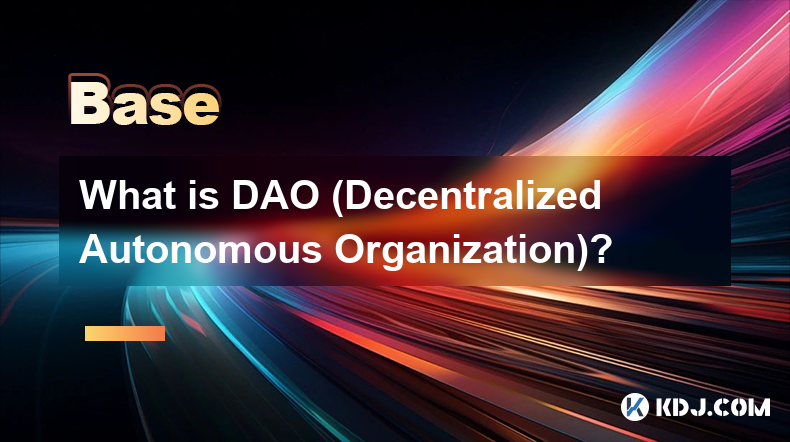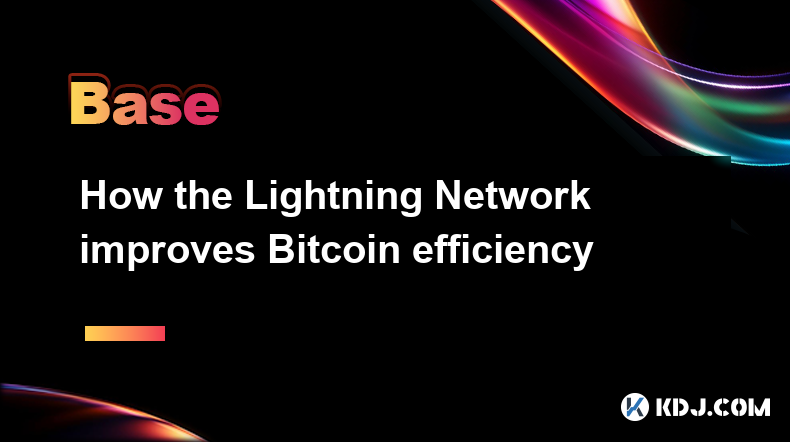-
 Bitcoin
Bitcoin $85,241.1267
0.86% -
 Ethereum
Ethereum $1,613.2760
1.57% -
 Tether USDt
Tether USDt $0.9997
0.01% -
 XRP
XRP $2.0881
1.00% -
 BNB
BNB $593.4937
0.27% -
 Solana
Solana $140.9305
4.89% -
 USDC
USDC $0.9999
0.02% -
 Dogecoin
Dogecoin $0.1577
0.05% -
 TRON
TRON $0.2448
1.12% -
 Cardano
Cardano $0.6311
0.24% -
 UNUS SED LEO
UNUS SED LEO $9.3004
0.81% -
 Chainlink
Chainlink $12.9705
2.67% -
 Avalanche
Avalanche $19.9947
4.58% -
 Stellar
Stellar $0.2468
2.35% -
 Toncoin
Toncoin $2.9726
-0.94% -
 Shiba Inu
Shiba Inu $0.0...01237
0.90% -
 Hedera
Hedera $0.1677
0.92% -
 Sui
Sui $2.1523
1.29% -
 Bitcoin Cash
Bitcoin Cash $339.5309
0.33% -
 Polkadot
Polkadot $3.8936
6.25% -
 Hyperliquid
Hyperliquid $18.0932
7.02% -
 Litecoin
Litecoin $76.3194
0.56% -
 Bitget Token
Bitget Token $4.5447
3.14% -
 Dai
Dai $0.9998
-0.02% -
 Ethena USDe
Ethena USDe $0.9991
-0.01% -
 Pi
Pi $0.6491
0.04% -
 Monero
Monero $217.3705
1.13% -
 Uniswap
Uniswap $5.3206
2.34% -
 Pepe
Pepe $0.0...07504
2.63% -
 OKB
OKB $50.7220
0.77%
What is DAO (Decentralized Autonomous Organization)?
Decentralized Autonomous Organizations (DAOs) offer innovative governance structures by leveraging blockchain technology to distribute power among members, automate processes, and promote transparency.
Feb 17, 2025 at 10:18 am

Key Points:
- Understanding the Concept of Decentralized Autonomous Organizations (DAOs)
- Constructing a DAO: Essential Steps and Considerations
- Pros and Cons of Utilizing DAOs for Organizational Governance
- Current and Upcoming Developments in the DAO Ecosystem
- Notable Examples of Successful DAOs
What is a Decentralized Autonomous Organization (DAO)?
A Decentralized Autonomous Organization (DAO) is an innovative entity powered by blockchain technology that operates autonomously without the need for traditional centralized leadership. These organizations leverage smart contracts to facilitate decision-making and automate business processes, promoting transparency, accountability, and shared ownership among members.
Constructing a DAO: Essential Steps and Considerations
- Establish a Purpose: Define the objectives and mission of the DAO, ensuring alignment among members.
- Create a Governance Framework: Develop a set of rules and procedures that guide decision-making and operation processes, including voting mechanisms and quorum thresholds.
- Establish a Codebase: Utilize smart contracts to automate decisions and operations in accordance with the established governance framework.
- Secure the DAO: Implement security measures to protect the DAO from malicious actors and ensure the integrity of its operations.
- Attract and Manage Members: Establish membership criteria and engagement strategies to foster a vibrant and committed community.
Pros and Cons of Utilizing DAOs for Organizational Governance
Pros:
- Decentralized Decision-Making: Distributes power among members, fostering consensus and mitigating biases.
- Transparency and Accountability: All transactions and decisions are recorded on-chain, providing visibility and auditability.
- Cost-Effectiveness: Automating operations through smart contracts reduces operational expenses and bureaucracy.
- Autonomous Operations: Smart contracts execute tasks and decisions without the need for human intervention, ensuring efficiency.
- Global Accessibility: Anyone with internet access can participate in governance and decision-making processes.
Cons:
- Complexity: Understanding and managing DAOs requires technical expertise and knowledge of blockchain technology.
- Slow Decision-Making: Consensus-based governance can be time-consuming, especially for complex decisions.
- Technological Limitations: Smart contracts are inflexible and cannot adapt to changes as quickly as traditional organizations.
- Regulatory Uncertainty: The legal status and regulations surrounding DAOs are still evolving, creating potential compliance risks.
Current and Upcoming Developments in the DAO Ecosystem
- Foundation DAOs: Supporting the creation and development of new projects through funding, mentorship, and other resources.
- Collector DAOs: Purchasing and investing in artwork, collectibles, and other physical or digital assets.
- Investment DAOs: Pooling resources and making collective investment decisions to diversify portfolios and mitigate risks.
- Governance DAOs: Implementing decentralized governance models for existing organizations and communities.
- Metaverse DAOs: Governing and shaping virtual worlds, communities, and experiences within the metaverse.
Notable Examples of Successful DAOs
- MakerDAO: A decentralized stablecoin protocol that uses DAI as its stablecoin, governed by MKR token holders.
- Uniswap: A decentralized exchange (DEX) that facilitates peer-to-peer trading of cryptocurrencies, governed by UNI token holders.
- Gitcoin: A platform for funding open-source projects and collaborating on decentralized governance initiatives, governed by GTC token holders.
- Compound: A decentralized lending protocol that allows users to earn interest on their crypto assets or borrow funds, governed by COMP token holders.
- DYDX: A decentralized derivatives exchange that enables users to trade futures and perpetual contracts, governed by DYDX token holders.
FAQs
Q: What is the difference between a DAO and a traditional organization?
A: DAOs are decentralized, meaning that power is distributed among members rather than concentrated in a central authority. They also leverage smart contracts and blockchain technology to automate decision-making and operations, promoting transparency and accountability.
Q: How can I join a DAO?
A: Membership criteria and requirements vary depending on the DAO. Typically, you will need to acquire the governance token of the DAO and meet any additional requirements set by the DAO's governance framework.
Q: How does voting work in a DAO?
A: Voting mechanisms vary depending on the DAO's governance model. Common methods include quorum thresholds, weighted voting based on token holdings, and governance proposals submitted by members for community approval.
Q: Are DAOs legally recognized entities?
A: The legal status of DAOs is still evolving and varies across jurisdictions. Some countries have enacted legislation specifically addressing DAOs, while others may consider them under existing corporate law or partnership structures.
Q: What are the risks associated with investing in DAOs?
A: Investing in DAOs involves risks such as volatility of the underlying token value, the technical complexity involved,
Disclaimer:info@kdj.com
The information provided is not trading advice. kdj.com does not assume any responsibility for any investments made based on the information provided in this article. Cryptocurrencies are highly volatile and it is highly recommended that you invest with caution after thorough research!
If you believe that the content used on this website infringes your copyright, please contact us immediately (info@kdj.com) and we will delete it promptly.
- title: Bitcoin price action is displaying several warning signs that could indicate a short-term price decline despite an overall bullish macro landscape.
- 2025-04-20 09:55:12
- Hedera (HBAR) Showing Mixed Signals as It Hovers at a Key Technical Juncture
- 2025-04-20 09:55:12
- Solana (SOL) is flashing familiar signals on the charts, tight consolidation, rising volume, and RSI strength
- 2025-04-20 09:50:12
- Trump’s Tariff Pause Sparks Crypto Rally—XRP, HYPE, ONDO & web3 ai Lead the Top Altcoins For April That Will 100x
- 2025-04-20 09:50:12
- With the crypto market heating up ahead of June, Cardano (ADA), Ethereum (ETH), and the emerging Mutuum Finance (MUTM) are all flashing bullish signals.
- 2025-04-20 09:45:12
- Pi Network (PI) Climbs 4% After Launch of Migration Roadmap
- 2025-04-20 09:45:12
Related knowledge

The function of cross-chain bridges in blockchain
Apr 19,2025 at 10:01am
The function of cross-chain bridges in blockchain is a pivotal topic within the cryptocurrency ecosystem, as these tools enable the seamless transfer of assets and data across different blockchain networks. This article delves into the various aspects of cross-chain bridges, explaining their importance, how they work, and the benefits and challenges the...

How the Lightning Network improves Bitcoin efficiency
Apr 17,2025 at 08:56pm
The Lightning Network represents a significant advancement in the Bitcoin ecosystem, aiming to address some of the most pressing issues related to transaction speed and cost. By enabling off-chain transactions, the Lightning Network drastically improves Bitcoin's efficiency, allowing for faster and cheaper transactions. This article will explore how the...

Market value ranking basis in cryptocurrencies
Apr 20,2025 at 05:08am
The market value ranking in cryptocurrencies is a crucial metric that investors and enthusiasts use to gauge the relative size and importance of different digital assets. This ranking is primarily based on the total market capitalization of each cryptocurrency, which is calculated by multiplying the current price of a single unit of the cryptocurrency b...

Analysis of the KYC process of cryptocurrency exchanges
Apr 17,2025 at 05:07pm
The Know Your Customer (KYC) process is a critical component in the operations of cryptocurrency exchanges. It serves as a regulatory measure to prevent fraud, money laundering, and other illicit activities. KYC procedures are designed to verify the identity of users and ensure compliance with financial regulations. This article delves into the various ...

The operating mechanism behind the stablecoin USDT
Apr 20,2025 at 08:08am
The stablecoin USDT, also known as Tether, is a cryptocurrency designed to maintain a stable value by pegging it to a reserve asset, typically the US dollar. Understanding the operating mechanism behind USDT is crucial for anyone interested in the cryptocurrency market, as it plays a significant role in trading and liquidity. This article will delve int...

How is the smart contract defined in Ethereum
Apr 19,2025 at 10:42pm
In the realm of blockchain technology, Ethereum stands out for its innovative approach to executing programmable contracts. A smart contract is a crucial element of this ecosystem, enabling decentralized applications (dApps) to function autonomously and securely. This article will delve into the definition of a smart contract within the Ethereum network...

The function of cross-chain bridges in blockchain
Apr 19,2025 at 10:01am
The function of cross-chain bridges in blockchain is a pivotal topic within the cryptocurrency ecosystem, as these tools enable the seamless transfer of assets and data across different blockchain networks. This article delves into the various aspects of cross-chain bridges, explaining their importance, how they work, and the benefits and challenges the...

How the Lightning Network improves Bitcoin efficiency
Apr 17,2025 at 08:56pm
The Lightning Network represents a significant advancement in the Bitcoin ecosystem, aiming to address some of the most pressing issues related to transaction speed and cost. By enabling off-chain transactions, the Lightning Network drastically improves Bitcoin's efficiency, allowing for faster and cheaper transactions. This article will explore how the...

Market value ranking basis in cryptocurrencies
Apr 20,2025 at 05:08am
The market value ranking in cryptocurrencies is a crucial metric that investors and enthusiasts use to gauge the relative size and importance of different digital assets. This ranking is primarily based on the total market capitalization of each cryptocurrency, which is calculated by multiplying the current price of a single unit of the cryptocurrency b...

Analysis of the KYC process of cryptocurrency exchanges
Apr 17,2025 at 05:07pm
The Know Your Customer (KYC) process is a critical component in the operations of cryptocurrency exchanges. It serves as a regulatory measure to prevent fraud, money laundering, and other illicit activities. KYC procedures are designed to verify the identity of users and ensure compliance with financial regulations. This article delves into the various ...

The operating mechanism behind the stablecoin USDT
Apr 20,2025 at 08:08am
The stablecoin USDT, also known as Tether, is a cryptocurrency designed to maintain a stable value by pegging it to a reserve asset, typically the US dollar. Understanding the operating mechanism behind USDT is crucial for anyone interested in the cryptocurrency market, as it plays a significant role in trading and liquidity. This article will delve int...

How is the smart contract defined in Ethereum
Apr 19,2025 at 10:42pm
In the realm of blockchain technology, Ethereum stands out for its innovative approach to executing programmable contracts. A smart contract is a crucial element of this ecosystem, enabling decentralized applications (dApps) to function autonomously and securely. This article will delve into the definition of a smart contract within the Ethereum network...
See all articles























































































